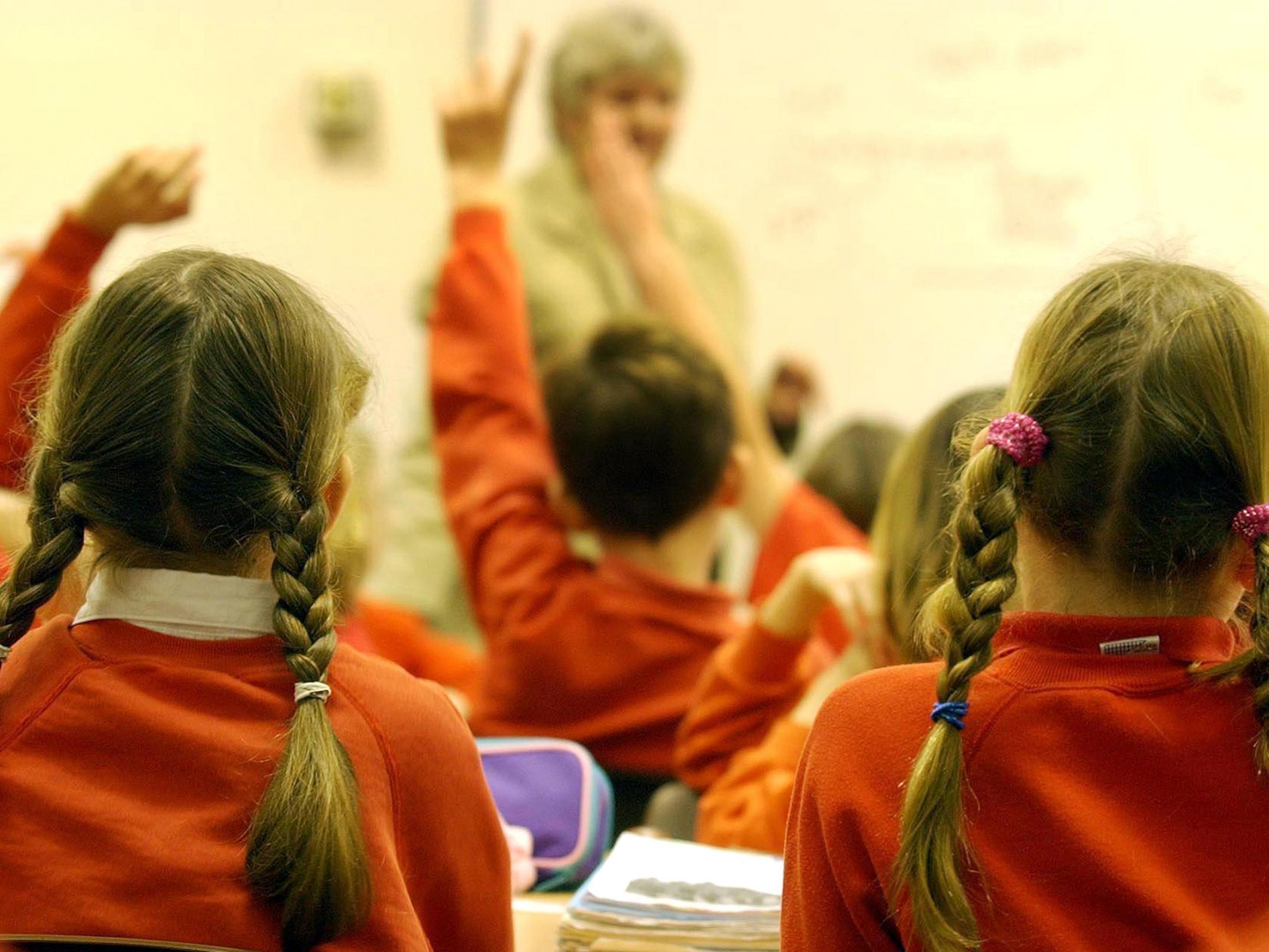Majority of head teachers oppose school tests for four-year-olds, study says
‘It is simply another way for the government to judge schools, using unreliable and unfair testing methods’

A majority of head teachers oppose controversial government plans to test four-year-olds in their first weeks at primary school, a new study suggests.
Thousands of schools across England will pilot “reception baseline assessments” in September, and the Department for Education (DfE) intends to make them compulsory in 2020.
But the 20-minute tests, which will assess communication, language, literacy and mathematics skills, were denounced by head teachers as “inappropriate” and “totally unnecessary” in research carried out by staff at University College London’s Institute of Education.
In a survey of 288 head teachers, including 20 in-depth interviews about the introduction of baseline assessments, only 8 per cent of responses were positive, compared to 73 per cent of head teachers who wrote negatively about the plans.
“Overall, the headteachers’ views on baseline [assessments] were largely negative, with even those who had some sympathy with the principle of assessing progress often expressing some concerns,” said the study’s author Dr Alice Bradbury.
“There was some very negative language used in relation to this policy, which suggests that some head teachers feel very strongly that this policy will not benefit schools or children.”
The government has said it will use the results of the test to hold schools to account for the progress that children make between reception and Year 6. It is expected to cost around £10m.
In the study, head teachers expressed concerns that the tests were unnecessary and a waste of resources, given most schools already conduct informal assessments to judge where children might need assistance.
“We already have an appropriate baseline that does not take staff too much time,” one teacher wrote. ”The baseline is used to identify gaps in learning and development for the staff to support the child, not locked away for seven years.”
Others, the majority of whom were heads of schools rated “Good” by Ofsted, worried that the tests would be an “unreliable” measure of progress given the early stage at which the tests are taken.
Their concerns echo a 2018 report by the British Educational Research Association, which warned that children born in the summer, those who speak English as an additional language, or those with special educational needs could be “unnecessarily labelled as low-ability” – judgements that risk becoming “self-fulfilling”.
Some respondents suggested this could lead to schools “gaming” the system, by deliberately ill-preparing pupils for the tests in order to record better improvements down the line.

But of the 8 per cent that responded positively, some felt that for schools with pupils from disadvantaged backgrounds, who have to “fight for every single ounce of positivity”, the standardised test would help to showcase the work they do upon entry to school.
“They will be looking at our children as they come in to the school and it’s really, really low levels,” said one head teacher. “So, for us, it’s a win because we make such amazing progress with them. Whereas, children that come from middle class backgrounds come in higher and it might be harder for them to make progress.”
A total of 9,600 primary schools will take part in the pilots, according to DfE, suggesting more than 7,000 schools decided not to.
“Heads agree with education experts and parents: this scheme is a waste of everyone’s time and a waste of £10m,” said Jill Robinson of More Than a Score, which commissioned the research.
“It has no basis in academic theory or even simple logic. It is simply another way for the government to judge schools, using unreliable and unfair testing methods.
“A batch of reception pupils will be used as guinea pigs when they should be settling into school and the government still can’t tell us how they’ll use the data which will be extracted from these four-year-olds.

“It’s time for the DfE to admit failure and halt the roll-out of this pointless and damaging experiment.”
In July, parents opposed to the plans launched a legal challenge to stop the government introducing baseline assessment, but a High Court judge ruled against their request for a judicial review in July.
In response to the study, a DfE spokesperson said: “The reception baseline assessment is a quick check of a child’s early language and ability to count when they start school to help inform teachers – nine in 10 schools already carry out on-entry checks.
“We are confident that the reception baseline assessment will lighten the load for schools, which will no longer have to carry out whole-class assessments at the end of year two, or deal with the test papers and administration that comes with that, while also being stress-free for children.
“We have been listening carefully to feedback we have received throughout the development process to ensure we get the experience right for pupils and schools.”
Join our commenting forum
Join thought-provoking conversations, follow other Independent readers and see their replies
Comments
Bookmark popover
Removed from bookmarks